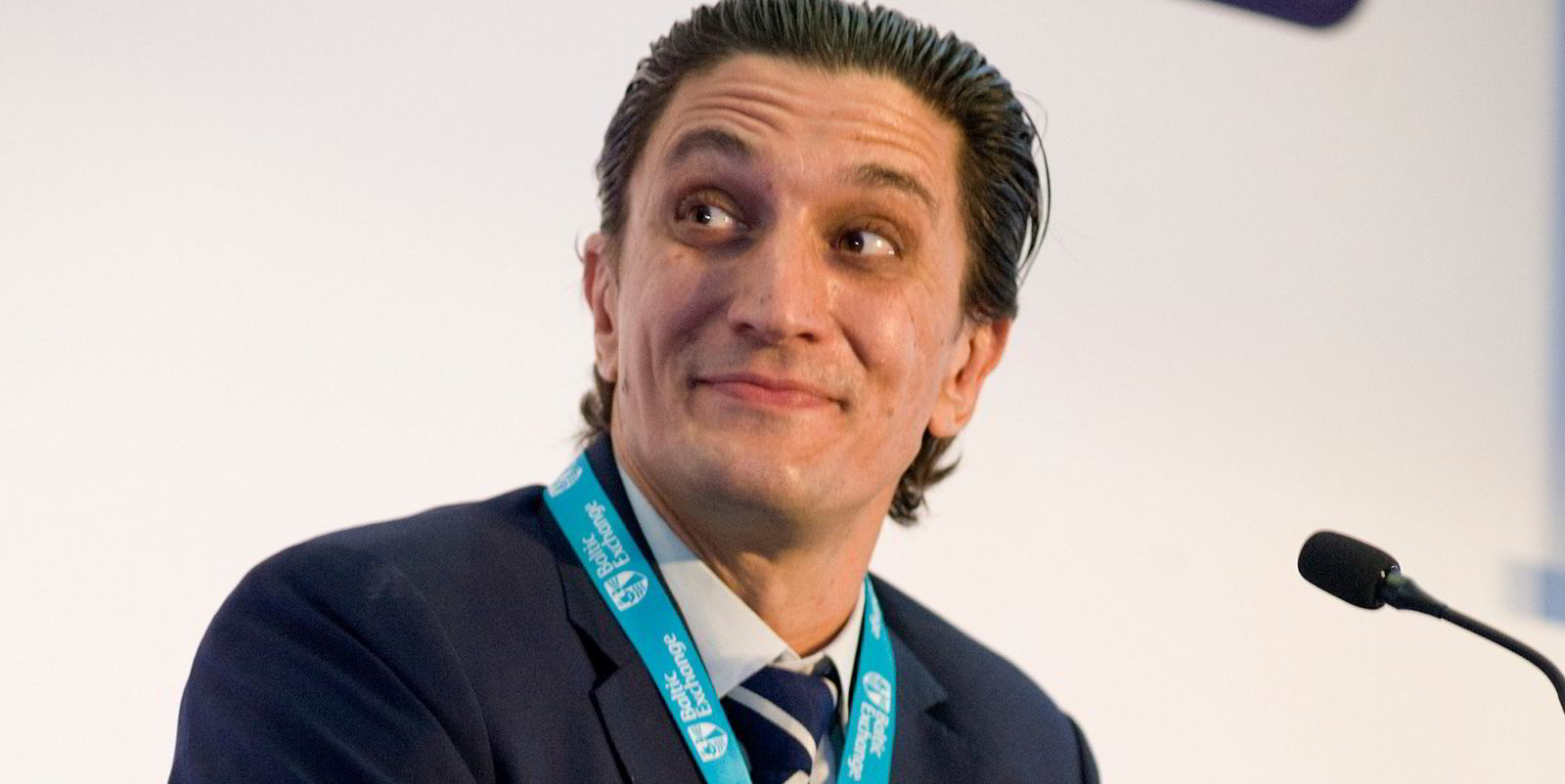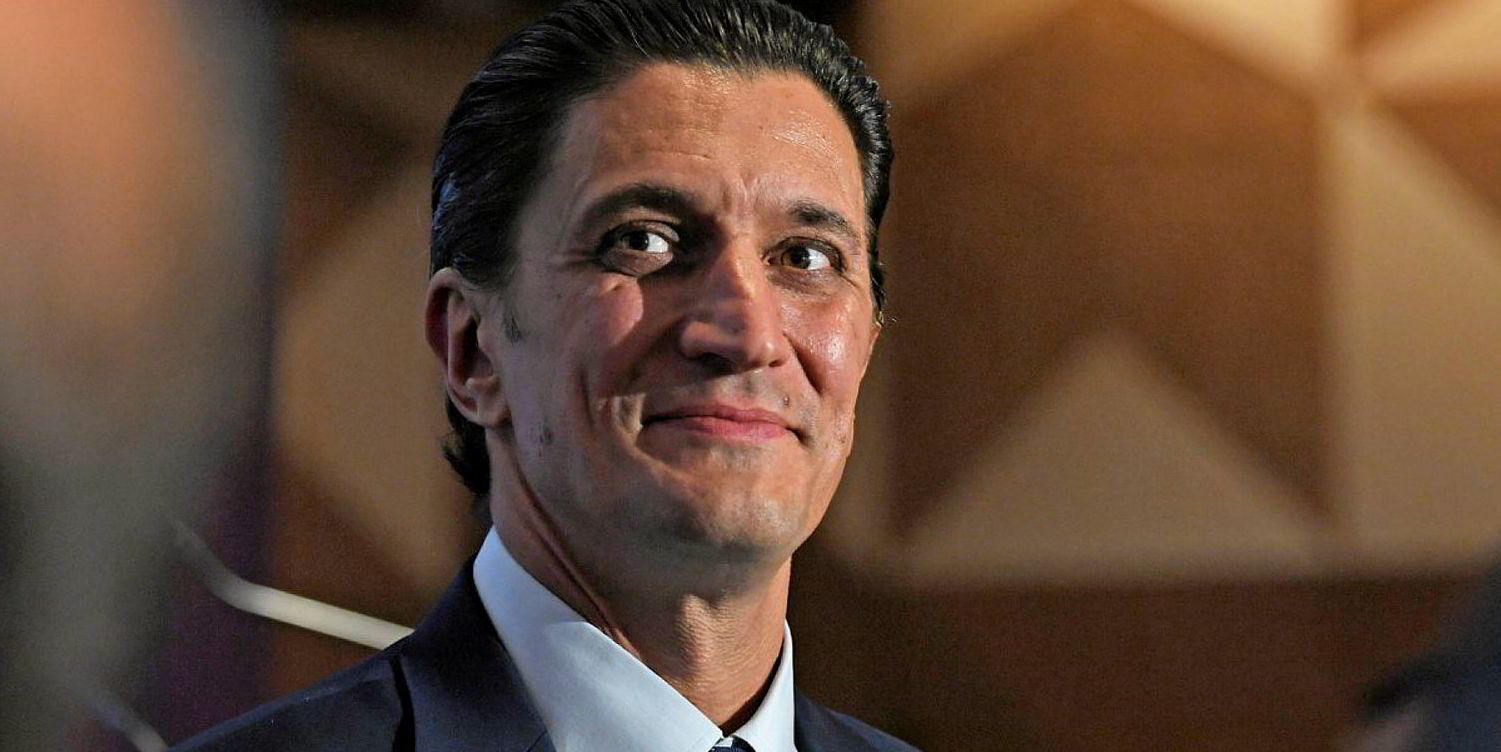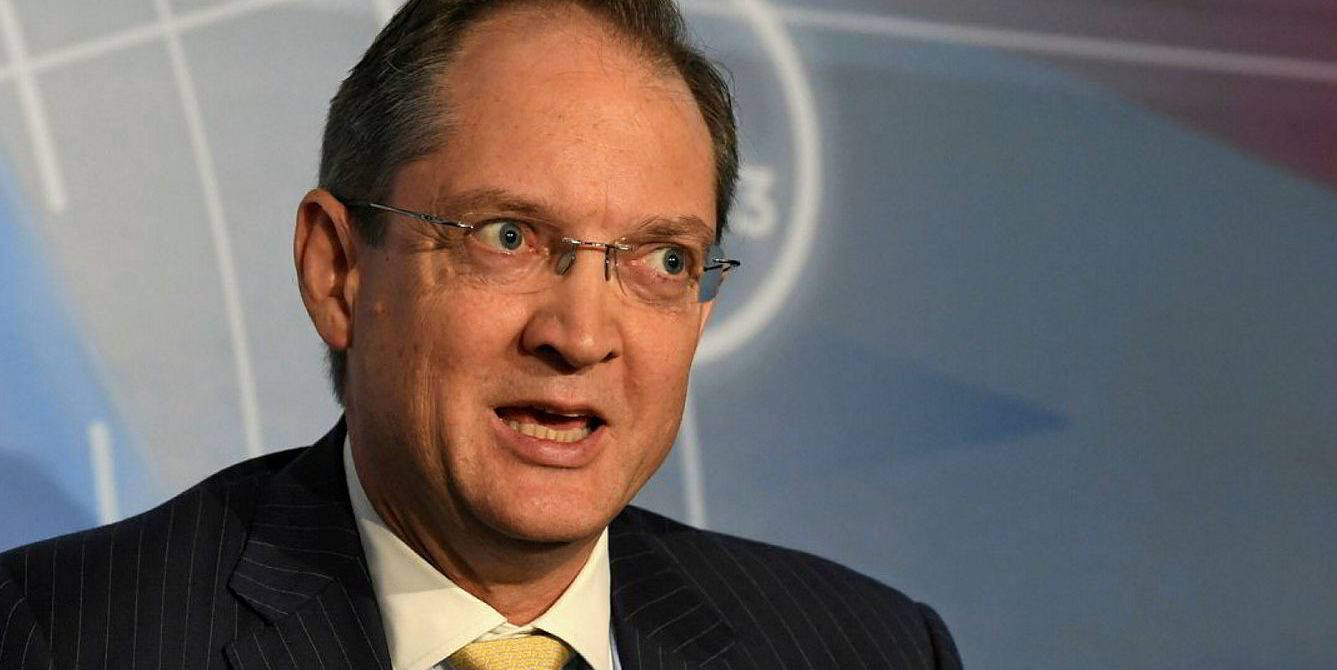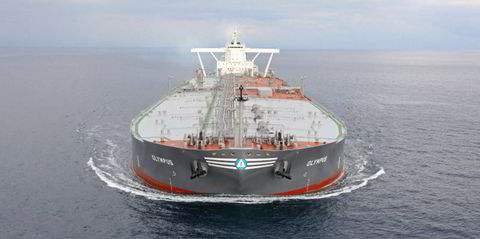It's the slow steaming, stupid!
The topic of decarbonisation sent shipowner John Michael Radziwill off on a rant on Wednesday on the closing panel of Marine Money's annual London conference, held virtually this year because of Covid-19.
Radziwill, chief executive of Oslo-listed dry owner GoodBulk, turned passionate on a panel with a heavy carbon-reduction theme, noting that shipping had actually managed to reduce emissions from a 2008 baseline despite operating a substantially larger fleet.
"The reason is the fleet slowed down — I've said this 1,000 times," Radziwill said as fellow panellists Andy Dacy of JP Morgan Asset Management and Peder Simonsen of Golden Ocean listened.
"I believe the environment is everything and we could do something about it right now, and we don't want to. We could slow down the fleet and the carbon emissions will be significant. Every day that you deny slow steaming, you are doing damage to your environment."
Radziwill was triggered by a question about how the growing environmental, social and corporate governance (ESG) movement was affecting shipowners' access to capital.
Challenging objectors
The owner of capesize bulkers ripped into those who object to slow steaming on the grounds that it distracts from more permanent, technology-based changes to propulsion systems as an answer to carbon emissions.
"Whatever wonderful solution you have in mind, you are adding to its cost every day by not adopting slow steaming," he said.
"Today in dry bulk, ships are speeding up 15-day trips to go wait in a queue for 35 days," Radziwill said, adding that "we should grab the low-hanging fruit and have a better environment".
It is not the first time Radziwill has pounded home the slow-steaming message. He advocated for the practice at a Capital Link Cyprus forum nearly a year ago, arguing it was "just mind-boggling" that the International Maritime Organization had not pursued it as an answer.
Radziwill drew some support from Dacy, London-based head of JP Morgan's global transportation group, who also noted shipping's overall reasonable performance in the carbon realm.
"If we all went vegetarian tomorrow, one of the biggest [carbon] polluters is the farming and ranching business at something like 18% — shipping is 2%" of global totals, he said.
Dacy added that slow steaming will become inevitable. He said: "Ships will have to slow down because they won't be able to comply" with existing IMO mandates.







